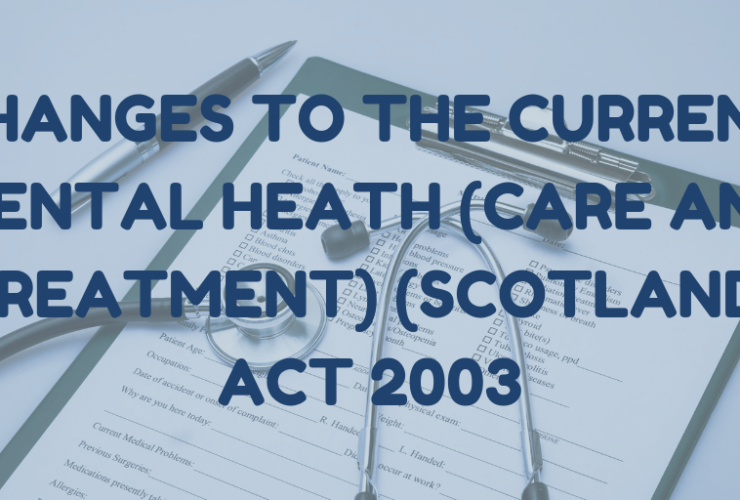The Mental Welfare Commission recently reported a 4.1% increase in episodes of compulsory treatment for mental health, which means 2017/2018 had the highest number of compulsory treatments since the inception of the Mental Health Act in 2003.
There are three detention certificates that make up these compulsory treatments:
- Emergency detention certificates (EDCs), which are used in critical situations when a person needs to be detained in order to receive urgent specialist care for a mental illness. An EDC means they can be detained in hospital for up to 72 hours and can be issued by any doctor.
- Short term detention certificates (STDCs) are often preferred by medical practitioners and need to be recommended by a psychiatrist and a mental health officers, which can then detain patients in hospital for up to 28 days.
- Compulsory treatment orders (CTOs) are a more complex affair, as the applications must include two medical reports, an MHO report and a proposed care plan. The Tribunal then decides whether a CTO is granted, which can last up to six months.
Interestingly, the gradual increase shows that perhaps awareness amongst police officers and governmental branches is still not high enough. This could suggest that, in strenuous and unknown scenarios, police might hastily revert to emergency detentions as a means of finding a solution to a problem that involves a mentally ill patient. Additionally, this could be exacerbated by the fact that critical or crucial emergencies are often subjective and need to be determined quickly. This could explain why Emergency Detention Certificates in particular, have risen astronomically in the last ten-year period, increasing by as much as 45% in total.
Increasing Awareness of Key Issues
Most of these issues start with a better understanding of the legislation and the systems that are in place to help mental health patients. Instead of using the system to increase detentions, it should seek to improve the care and attention that people receive when they are detained.
The Mental Welfare Commission has repeatedly expressed its concerns over the “continued rise in the use of the law to treat people for mental illness,” but it will take a lot of input from various governmental branches to improve these statistics. Information campaigns could hold the key, and these could also help to lower the amount of Appeals submitted to the Mental Health Tribunal. As a result, this statistic is crucial to unlocking improvements when it comes to compulsory mental health treatments and it will be interesting to see what happens in 2019.


